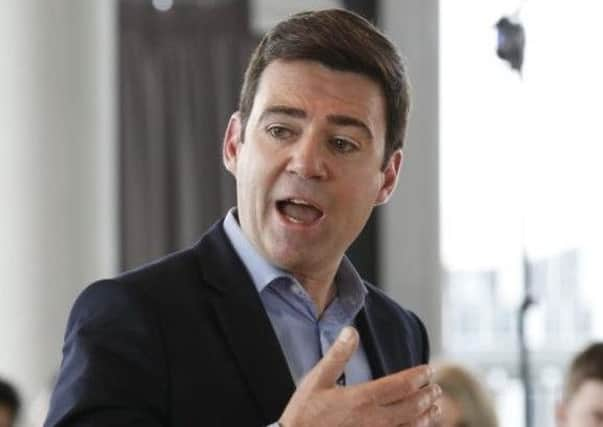Labour's campaign chief hits back at claims party is too '˜London-centric'


Speaking to the Yorkshire Post, Shadow Communities Secretary Andrew Gwynne said Burnham’s criticism made “for a good media headline” but was not borne out by this year’s conference line-up.
The Manchester MP also defended Labour’s support for devolution after it was suggested the party has been “half-hearted” in its commitment to the policy.
Advertisement
Hide AdAdvertisement
Hide AdIn a veiled criticism of the Government’s opposition to a One Yorkshire deal, told this paper he objects to a “one size fits all” approach and believes the region will find a solution “that works for Yorkshire”.
Mr Gwynne’s comments follow an interview by Mr Burnham in which he criticised the decision not to feature a Northern mayor in the list of this year’s headline speakers. This is despite London Mayor Sadiq Khan being given a last-minute slot.
The recently elected metro mayor told BBC One’s Sunday Politics: “It is not about me having a divine right to speak at conference. But it disappoints me that there is no prominent northern voice from one of the cities speaking to balance Sadiq Khan.
“This is not a Jeremy criticism. This is institutional. The party is too London-centric. It isn’t thinking enough about getting a strong message to voters in the North.
Advertisement
Hide AdAdvertisement
Hide Ad“What does it say about the party’s commitment to devolution?” he added. “It could suggest that it’s half-hearted.”
The head of Newcastle City Council, Nick Forbes, waded into the debate as he called for a shake-up of the way members of the party’s ruling National Executive Committee are elected to ensure every region has a voice.
He told the Birmingham Mail: “The party must at all costs avoid the perception that it is dominated by London interests alone.”
However, asked whether he agreed with Mr Burnham’s comments, Mr Gwynne, who is also the party’s co-National Campaign Coordinator, replied that they “make for a good media headline”.
Advertisement
Hide AdAdvertisement
Hide Ad“The reality is that of all the speakers in the Shadow Cabinet that are addressing conference this week, the majority of them are not London MPs,” he said.
“It just suits a media narrative.... We are not a London-centric party, we seek to represent the whole of Great Britain, whether that’s Scotland, whether that’s Wales, whether that’s the English regions, or whether that’s London.”
Pressed on the party’s commitment to the devolution agenda, he argued that it was the Labour Party “that started the devolution process”. And asked whether a future Labour Government would be open to a region-wide devolution deal like the One Yorkshire model, he said: “I’m not going to be a one-size-fits-all secretary of state... Yorkshire will come forward with something that works for Yorkshire.”
The disagreement came as Shadow BEIS Secretary Rebecca Long-Bailey insisted Labour is the only party that has the determination to rebalance the UK’s economy and close the North-South funding gap.
Advertisement
Hide AdAdvertisement
Hide AdSpeaking to regional journalists, the Salford MP, who is responsible for drawing up the party’s industrial strategy, expressed admiration for the government’s Northern Powerhouse agenda but accused ministers of doing too little to drive reform.
“The Northern Powerhouse... sounds fantastic on paper. But we want to see that in reality, we don’t want to simply see a devolution of cuts to local authorities,” she said. “We’ve got businesses in the regions that are saying they’re not getting the support they deserve. And the ones that are successful, its like a lottery.
“We don’t want it to be a lottery where there are winners and losers. We want to make sure the everybody can reach their potential.”
Asked why voters should trust Labour to succeed in delivering change when so many successive governments have failed, she added: “Because we’ve got the will to do it.”